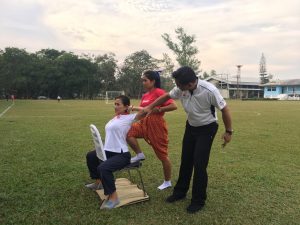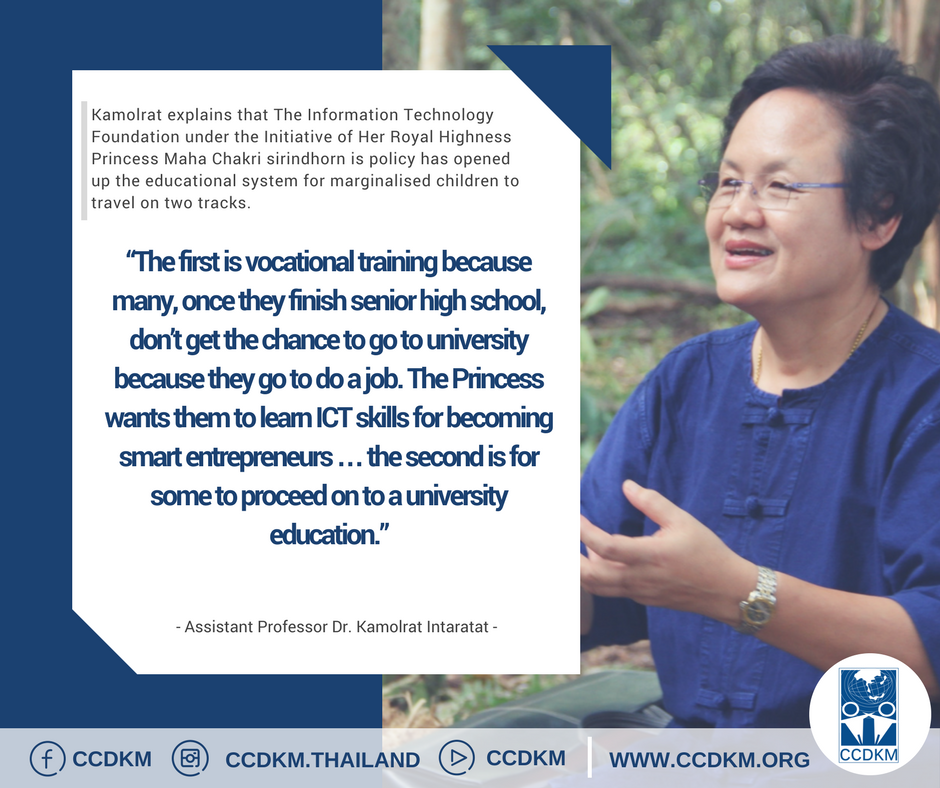By Kalinga Seneviratne

CHANTABURI, North-East Thailand (IDN) – A passionate, socially conscious doctor in this rural farming community in the north-east of Thailand is working with a school for marginalised children, supported by a foundation set up by Princess Maha Chakri Sirindhorn, the second daughter of late King Bhumibol who died in October 2016.
The school aims at empowering the students to break into the medical field through an unconventional career path that is providing a multi-faceted approach to addressing the Sustainable Development Goals (SDGs).
After a demonstration at the school by his students of a unique Thai massage therapy he has developed to treat what is called ‘office syndrome’ (problems of the neck and shoulder due to long exposure to working in front of a computer screen), Dr Poonchai Chitanuntavitaya, Chief Medical Officer of Social Health Enterprise told IDN: “I have here six Hmong (hill tribe) students and their families are very happy. If they stay there (in the hills) they will be just workers in the corn field but here they can gain knowledge, gain self-esteem and they could one day become health professionals.”
“Once I get training, I get more opportunities to get a job,” one of his students 17-year-old Natetaya Janelinda told IDN. “Along the way I can help others who are sick,” adding that one day she would like to become a doctor.
Professor Kamolrat Intaratat, consultant to the Smart Schools programme and Director of the Centre of Communication and Development Knowledge Management (CCDKM), who was listening to the interview, said: “I’m surprised she said she wants to be a doctor. Normally marginalised kids don’t dare say that. This programme has given her self-confidence
Two-track education

Kamolrat explains that the foundation’s policy has opened up the educational system for marginalised children to travel on two tracks. “The first is vocational training because many, once they finish senior high school, don’t get the chance to go to university because they go to do a job. The Princess wants them to learn ICT skills for becoming smart entrepreneurs … the second is for some to proceed on to a university education.”
According to Kamolrat, “the first step of ICT training is simple e-commerce, knowing that they can use ICT for taking the product to market … from packaging to PR to advertising. Do e-marketing themselves. Check stock, update catalogue, as well as do e-banking. How to transfer money using internet”.
Dr Poonchai’s programme is a new innovation for the idea of the Smart School – a technology-based teaching learning institution to prepare children for the Information Age – notes Kamolrat.
“Thais are good in massage, it comes from our ancestors … this doctor is trying to integrate medical knowledge into indigenous knowledge, train youth in this kind of massage. It is to be academically and professionally trained … when they gain experience from a young age they can become professional massager, and the sustainability of this is in no doubt,” she argues.
Read more: Thai Doctor Creating Multi-Faceted Approach to Sustainable Development
